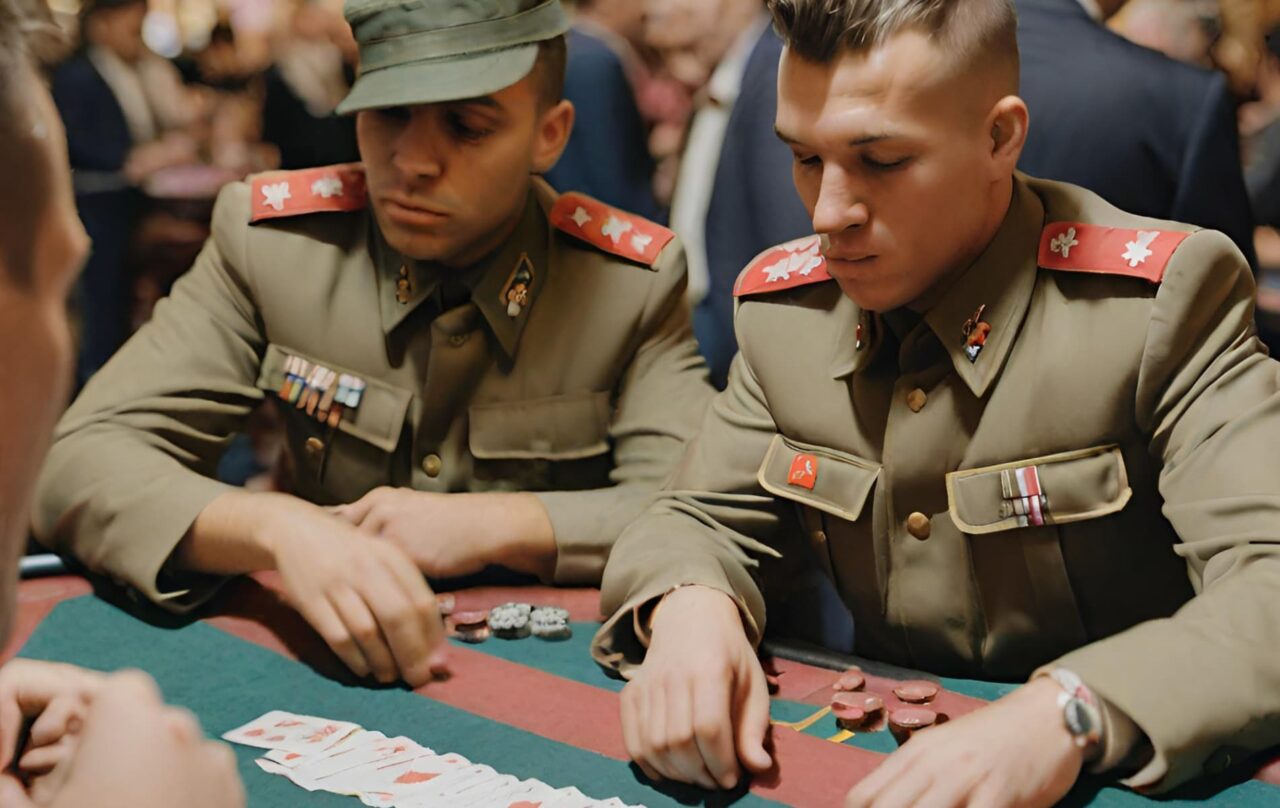
During conflicts or periods of instability, there might be a shift in gambling preferences towards online platforms. People may opt for online gambling at Pokie Mate due to safety concerns or restrictions on physical establishments. However, this shift could also be influenced by economic hardships, as online gambling may seem more accessible and affordable compared to visiting traditional brick-and-mortar casinos.
Wars can indeed impact the gambling market in various ways, often reflecting the broader economic and social consequences of conflicts. Here are some ways wars can affect the gambling industry.
Psychological Impact on Consumer Behavior
Wars breed a climate of uncertainty, fear, and apprehension among citizens. This psychological impact can significantly influence consumer behavior. Individuals become more cautious with their spending, prioritizing essential goods and services over discretionary purchases. This shift in consumer behavior directly affects industries such as tourism, entertainment, and luxury goods, which rely on discretionary spending.
Economic Impact
- Consumer Behavior: During times of war or geopolitical unrest, consumer spending patterns often change. People might become more cautious with their discretionary spending, including entertainment expenses like gambling. The uncertainty and financial strains caused by conflicts may lead individuals to reduce their gambling activities or opt for more conservative spending habits.
- Tourism and Hospitality: War or conflict in a particular region can significantly affect tourism and hospitality industries. Casinos and resorts in conflict zones or nearby areas may experience a decline in visitors due to safety concerns, travel restrictions, or overall instability. This decline in tourism can have a direct impact on the revenue of gambling establishments.
Regulatory Changes and Perceptions
- Government Priorities: During wartime or periods of heightened geopolitical tensions, governments might shift their priorities and assets away from the gambling sector. Regulation and oversight of gambling activities may be altered or become stricter, impacting the industry’s operations and profitability.
- Public Perception: The perception of gambling can also change during times of conflict. Some individuals may view gambling as a frivolous or unnecessary activity during uncertain times, leading to decreased participation or public scrutiny of the industry’s perceived societal impact.
Shifts in Online Gambling

The energy sector stands as a pivotal barometer highly attuned to geopolitical tensions and conflicts. Regions abundant in oil or natural gas reserves often become focal points of war, triggering significant disturbances within the global energy market. These conflicts instigate tumultuous fluctuations in oil prices, create scarcities in supply chains, and prompt the formation of strategic geopolitical alliances that wield direct repercussions on energy firms, consumers, and economies across the globe. Consequently, the energy sector undergoes a volatile phase, exacerbating uncertainties and exposing economic vulnerabilities on an international scale. In such times, online gambling emerges as a seemingly more accessible and cost-effective alternative to traditional brick-and-mortar casinos.
Market Volatility and Investor Sentiment
The economic scars left by wars can endure for generations. Mounting debts incurred to sponsor wartime expenditures burden national economies for years, diverting assets away from crucial sectors such as education, healthcare, and infrastructure growth. The long-term effects impede sustainable expansion, hampering economic progress and perpetuating cycles of poverty and instability.
Investor Confidence: The gambling industry, like other sectors, can be affected by overall market volatility caused by geopolitical tensions. Investor sentiment and confidence in the stability of certain markets may decline, impacting investment decisions related to gambling stocks and companies.
Human Capital and Brain Drain
Conflicts resulting from wars compel displacement, leading to the displacement of entire societies and triggering a notable exodus of skilled professionals within the entertainment industry, intellectuals, and entrepreneurs. Individuals seek safety and pursue improved prospects elsewhere, away from the turmoil and uncertainties of battlefields. This exodus deprives nations of valuable human capital, stunting economic growth and innovation within the affected areas. The loss of skilled workers can cripple industries and impair the recovery of war-torn economies for years to come.
Conclusion
Wars and conflicts can have complex and multifaceted effects on the gambling industry. While the impact may vary depending on the specific circumstances and regions involved, economic uncertainties, changes in consumer behavior, regulatory shifts, and alterations in investor sentiment are among the factors that can influence the gambling market during times of war. Understanding these dynamics is crucial for industry stakeholders to adapt and navigate challenges that arise from geopolitical turmoil.